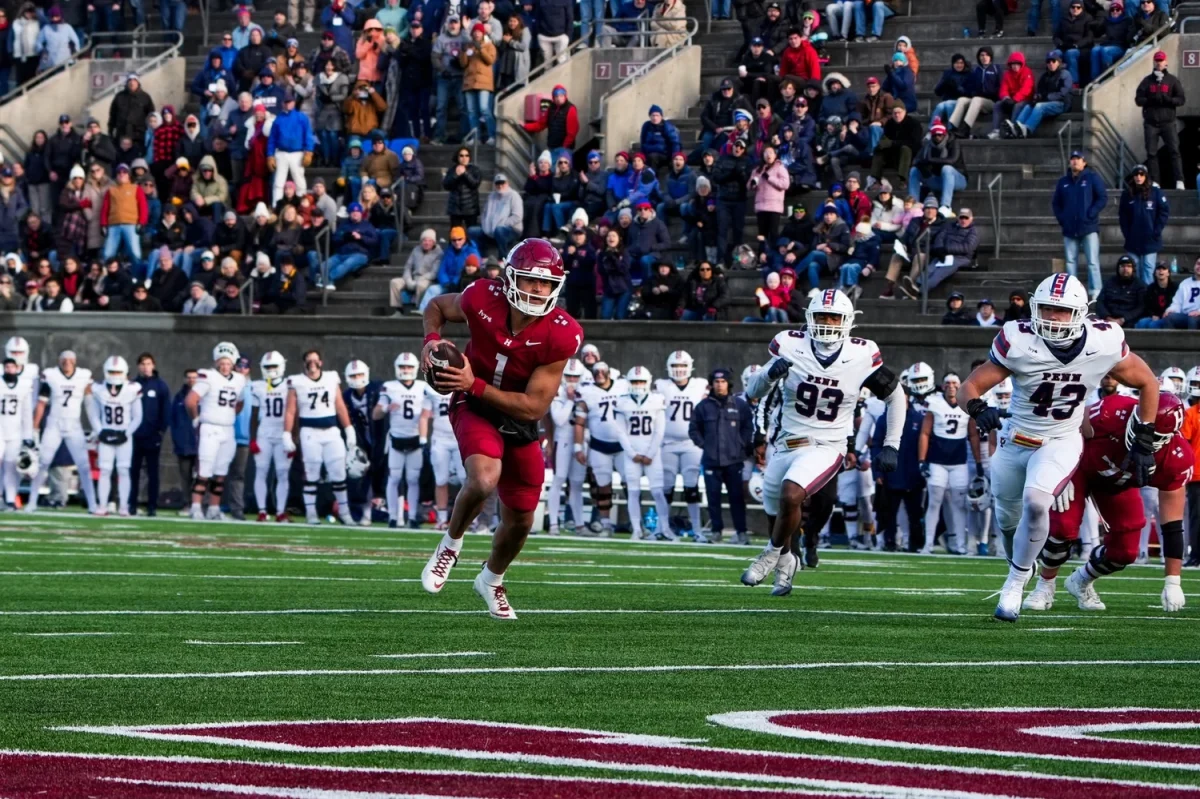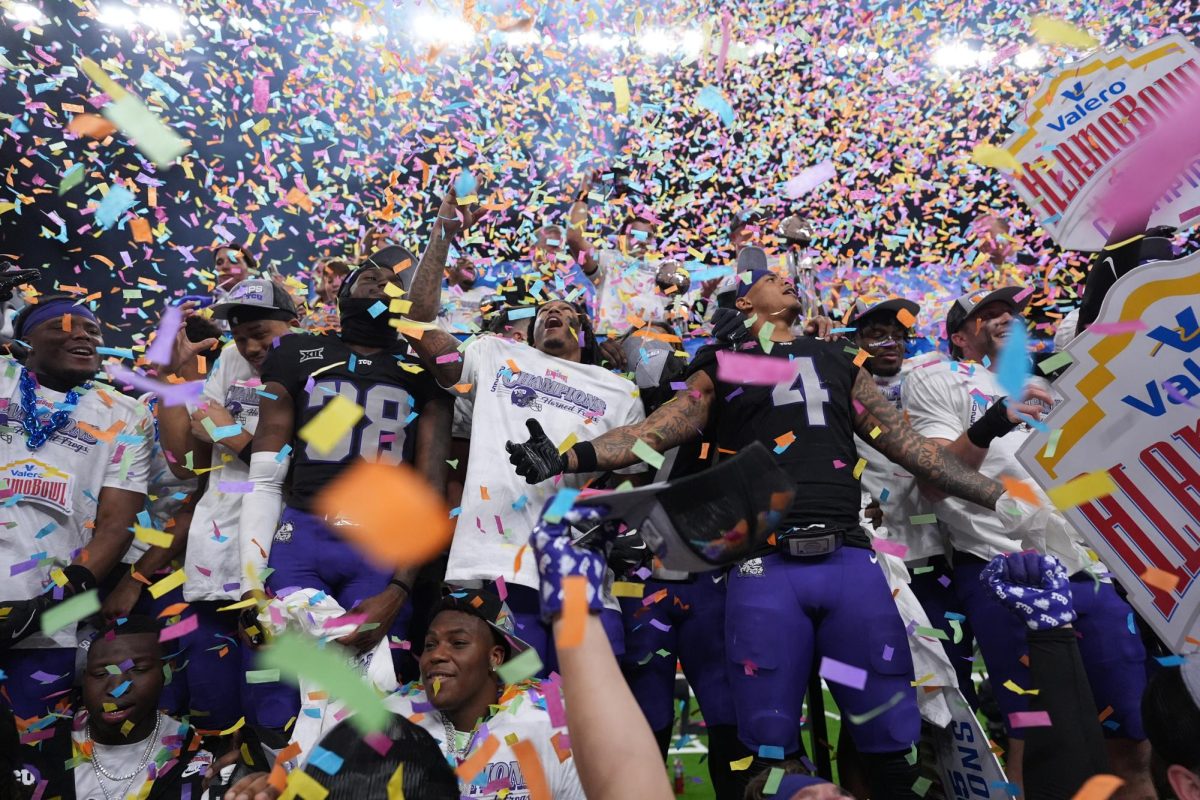At his weekly press conference on Tuesday, TCU head coach Gary Patterson raised some eyebrows when he said he would not trade Trevone Boykin for any quarterback he has ever coached. However, Patterson stood by his statement Wednesday.
“No I wouldn’t,” he said. “Because I’ve played against him in practice and I’ve played against everybody else…I’m just telling you, I play him on a day-to-day basis.”
Patterson has coached some very good quarterbacks, most notably Cincinnati Bengals signal-caller Andy Dalton. However, the coach said Boykin is more athletically gifted and difficult to defend in practice than Dalton or any other quarterback who has played for him.
Patterson said the key for TCU is helping the sophomore show that talent on Saturdays.
“We’ve got to do things to give him more help. I’m not saying that if he doesn’t get done what he needs to get done, we won’t have to make a change,” Patterson said. “All I’m saying is I haven’t faced anybody as big, strong, [with] any stronger arm than what he does.”
Boykin is likely to start on Saturday against Texas since doctors have yet to clear Casey Pachall to return from his broken forearm. Pachall will meet with doctors again before the game, but unless he receives very good news, Boykin will be the one taking snaps for the Horned Frogs.
Redshirt freshman Tyler Matthews played a few snaps last week against Oklahoma State, and he could see more action this week if Boykin struggles or gets injured. But whoever is throwing passes for the Frogs will receive all the praise if they win and shoulder all the blame if they lose, according to Patterson.
“It hasn’t failed with quarterbacks. If they find a way to win, everybody forgives them,” he said. “If they don’t make the play they need to win, then [people say] you can’t play. It’s been that way before Trevone. It’ll be that way after Trevone or any other quarterback.”
Offensive game plan:
The Frogs are making a number of adjustments offensively in order to prepare for Texas, including how they are calling plays. Co-offensive coordinator Rusty Burns will lead the play-calling while his counterpart, Jarrett Anderson, will coach from the sidelines.
Patterson initially made the change at halftime against Oklahoma State, calling for Anderson to move down from the press box where he had been calling the offense and allowing Burns to take the lead. The results were mostly positive, as the Frogs gained 263 yards and scored all of their points in the second half, which is why Patterson decided to stay with the change this week.
Patterson said Anderson will still have input in the play-calling, and that he likes having two people supervising the offense so that one can watch what the defense is doing and make suggestions based on that.
One of the other changes TCU is making is along the offensive line. After low snaps were a recurring problem for center Joey Hunt against the Cowboys last week, the Frogs made a switch at the position, but Patterson declined to give more details.
“Yeah, we made a change. But I’m not telling Texas,” he said.
One possibility is senior guard Eric Tausch, who started at center last season. Freshman center Patrick Morris could also be an option.
Run, run, run, as fast you can:
Texas’ defense was incapable of stopping the run early this season, giving up 550 rushing yards to BYU and 276 on the ground to Ole Miss a week later. Under new defensive coordinator Greg Robinson, however, the Longhorns have made significant strides in that regard, allowing just 3.7 yards per rush since he took over the defense.
“They’ve really shored themselves up in the last couple weeks,” Patterson said. “They’ve made themselves a lot more secure if you watch them on film.”
TCU made the running game a point of emphasis against Texas last season, carrying the ball 48 times for 217 yards in a 20-13 win. The Frogs lined up under center and pounded the ball with tailbacks Matthew Tucker and B.J. Catalon, and Boykin threw the ball just nine times.
The Frogs could use a similar formula this time around because running the ball with Catalon and Waymon James has been TCU’s most consistent option offensively. Each of them averages 4.9 yards per carry or more, and they have combined for nine touchdowns on the ground. Aaron Green has also made plays in his limited playing time, and sophomore Jordan Moore could see the field more on Saturday as well.
“I think you’ll see him play more this week,” Patterson said of Moore.
The 6-foot-3, 221 pound sophomore moved to running back from linebacker last season. He is the largest of the Frogs’ backs, but he also has speed: at Martin Luther King High School in Atlanta, he set the Georgia high school record in the 110-meter hurdles with a time of 13.39 seconds.




